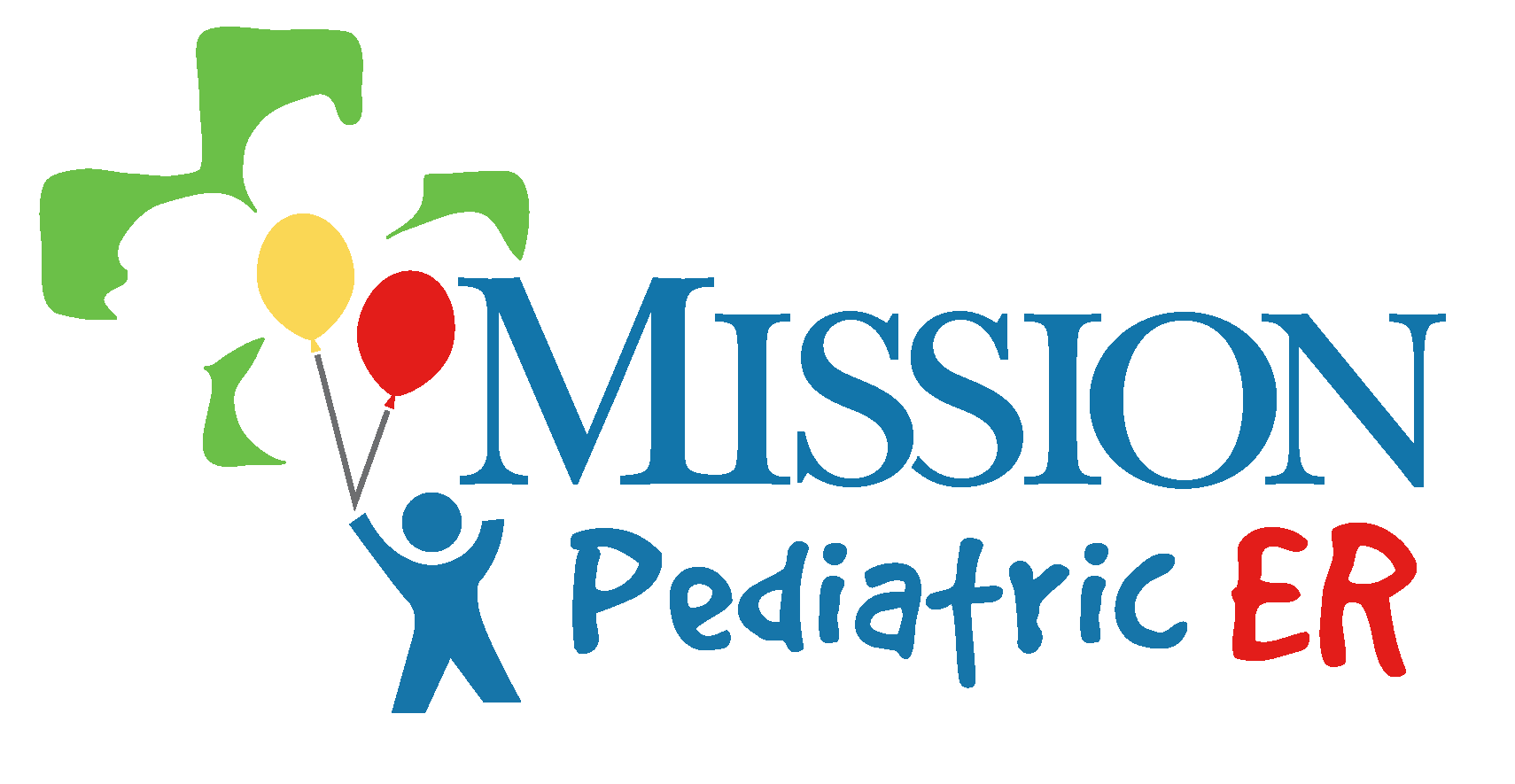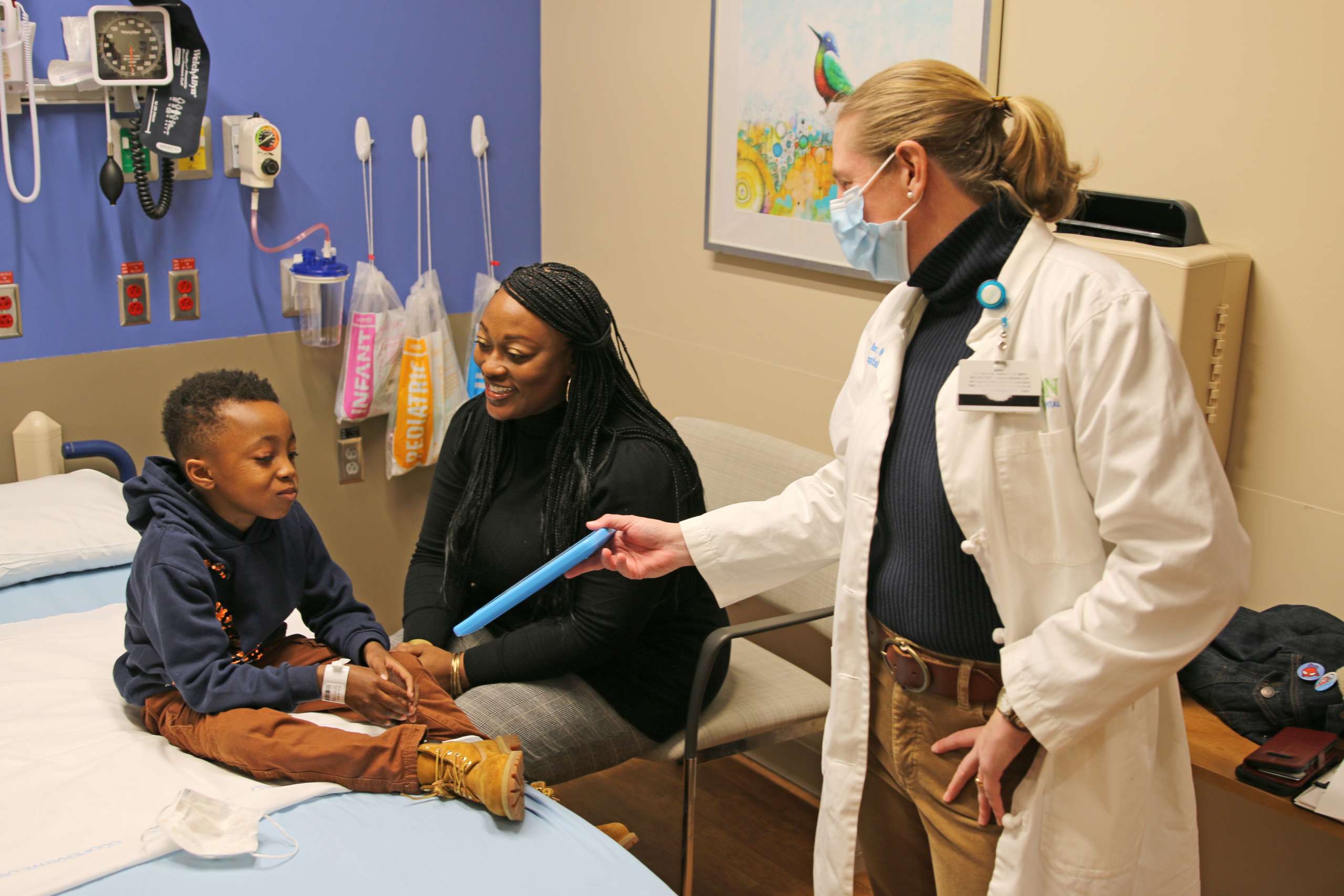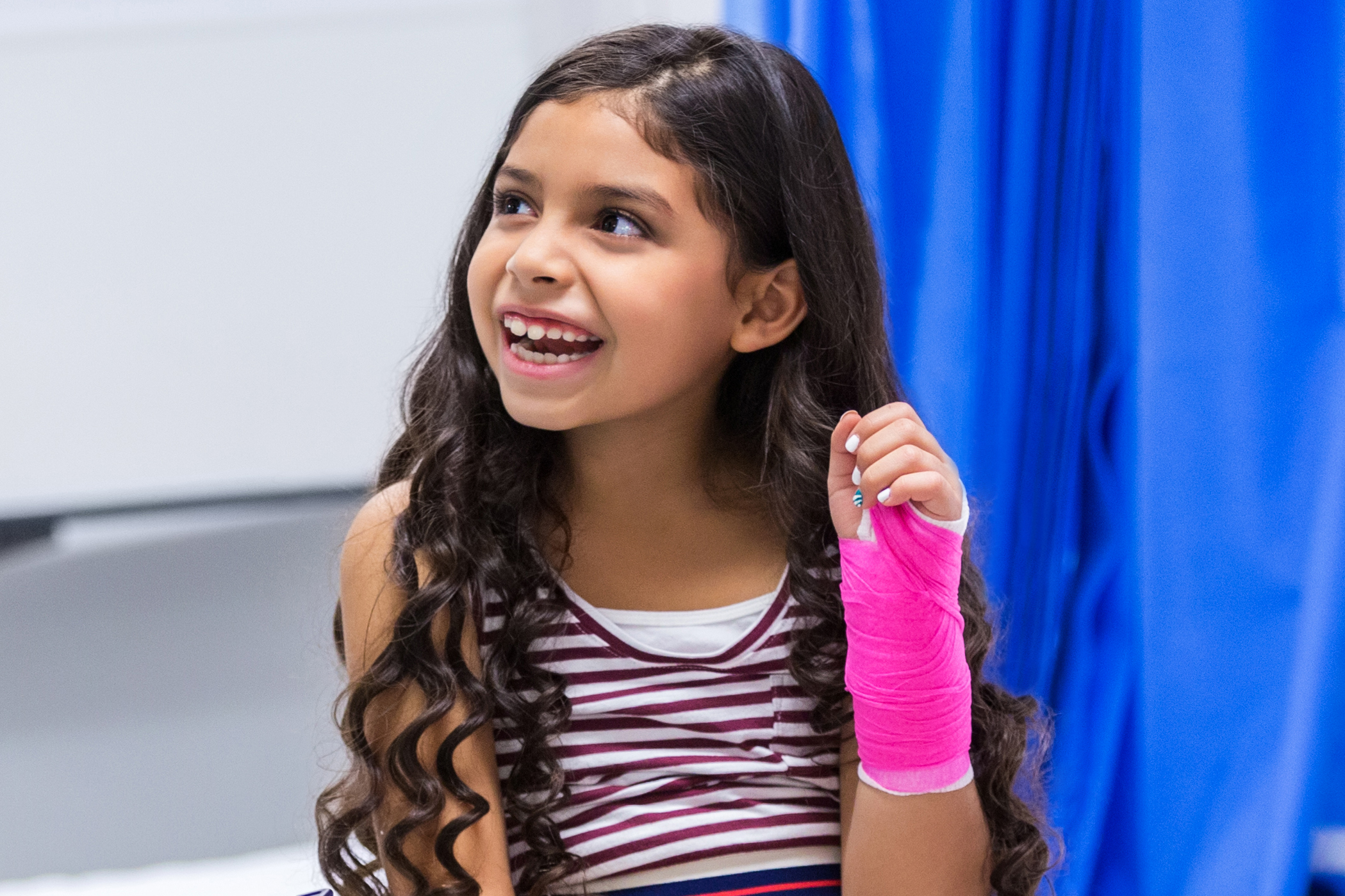Pediatric ER Now Open at Mission Hospital
Mission Hospital's new Pediatric Emergency Room offers specialized pediatric-focused physicians and providers for your child in a kid-friendly environment. The pediatric ER offers full-service pediatric emergency care treating a range of pathologies from minor to life-threatening for kids of all ages.

Located on the new North Tower of Mission Hospital in Asheville, the pediatric ER is equipped to ensure to meet essential guidelines and have resources in place to provide a safe and family-centered emergency experience, including:
- Emergency care 365 days a year
- Registered, emergency-trained nurses supported by pediatric child life specialists
- Pediatric-friendly rooms and waiting area
- Pediatric pain management techniques
- Pediatric computerized drug-dosing for safety
- Access to Mission Health's Children's Hospital facilities and physicians, including:
- Pediatric specialists
- Pediatric and neonatal children's specialty transport team
- Seamless admission if inpatient care is required

When to visit a pediatric ER
Whether it's the middle of the night or the middle of the big game, any time your child becomes ill or injured, you naturally have lots of questions and concerns. One of the most common is when I should take my child to the ER? It's always better to be safe than sorry, and you should certainly listen to your parental intuition whenever you feel something isn't right. Minor illnesses and injuries can be diagnosed and treated by an urgent care center or a primary care physician. For severe, life-threatening emergencies, seek treatment at a pediatric ER.
Some symptoms and conditions are better suited for pediatric emergency care, including:
- Allergic reactions/breathing problems
- Broken bones
- Coughing/throwing up blood
- Deep wounds/burns/heavy bleeding
- Fainting/seizures
- High, uncontrolled fever
- Headache/dizziness/weakness/confusion
- Head injury/concussion
- Inhaled smoke/toxic fumes
- Persistent, non-specific pain, such as stomach pain or chest pain
- Persistent vomiting/diarrhea/dehydration
- Poisoning/alcohol or drug overdose
- Suicidal thoughts
High fever in children
Fever is an indication that your child's body is fighting illness and infection, and that's usually a good thing. In children, fever is usually the sign of a harmless viral infection and very rarely (about 1 in 100) indicates a severe illness.
However, there are times when a fever is not beneficial and warrants immediate medical attention. Here's what to look for:
When to take a child to the ER with a high fever:
- Bring your child to the ER for a fever if they are <3mo and have a temperature of 100.4°F or higher, or are any age and they are immunocompromised, having other concerning symptoms (lethargy, poor feeding, severe sore throat, severe headache, stiff neck, unexplained rash, or repeated vomiting or diarrhea), or under the direction of their doctor.
- Older children and adults: A high fever is above 102°F and doesn't respond to medication or lasts for more than three days or one that consistently spikes to 103°F or higher.
When to seek medical care for fever with other symptoms
Often a child's temperature falls below high fever guidelines, but as a parent, you just know something's wrong. Always listen to your intuition where your children are concerned. In addition to fever, if your child has any of these additional signs and symptoms, medical care may be necessary.
- Childhood illnesses: If something's going around at school or in the neighborhood, your child may need to be checked to see if she's contagious or needs treatment.
- Tummy troubles: Stomach pain accompanied by repeated vomiting and high fever should always be checked out, but so should stomach pain without fever if it is severe, lasts 24 or more hours, or is localized to one particular area.
- Breathing problems: Children who are having trouble breathing, who are making wheezing or crackling sounds, or who are coughing severely should be examined immediately.
- Seizures: Some children experience febrile seizures when they have a fever. While this can be frightening and is certainly worthy of a trip to the ER, most fever-triggered seizures are harmless.
- Other warning signs:
- Lethargy, inactivity, sleepiness or unresponsiveness
- Pale, ashy, patchy or bluish skin or a reddish rash
- Weak or constant crying or fussiness
- Loss of appetite
- Muscle weakness, ear pain or stiff neck

Broken bones in children
Many people don't realize that the terms "fracture" and "break" mean the same thing when it comes to broken bones. A fracture is a break in any bone in the body, and there are many different types of fractures.
Unless it's a really obvious break, it's often hard to diagnose a fractured bone without an X-ray and a medical exam. Children who exhibit any of the following symptoms may have a broken bone and should be seen right away. If your doctor recommends casting, be sure to ask for a waterproof cast so your child can shower, bathe and swim comfortably.
Seek immediate treatment for a child who:
- Has intense pain or pain that lasts longer than a few days after a fall or injury
- Has swelling, bruising, or bleeding
- Has numbness and tingling
- Is not using or is favoring an arm or leg
- Is unable to walk or is walking crooked
- Is too young to talk and keeps pointing to or favoring a body part, or cries when it is moved or touched

Stomach pain in children
Stomach pain is among the top reasons for ER visits for both adults and children. More correctly termed abdominal pain, it has a long list of potential causes—from benign (too much candy or fried food) to life-threatening (appendicitis).
It's often hard to know when to "tough it out" and when to seek treatment. For children, especially infants and babies too young to tell you what's wrong, here are some definite signs that you should seek immediate medical care.
Seek immediate treatment if your child has stomach pain, that is:
- Accompanied by a high fever
- Accompanied by repeated vomiting (babies younger than three months who are vomiting or having diarrhea should be seen right away)
- Accompanied by other serious or unusual symptoms, such as difficulty breathing or change in child's behavior
- Severe (infants and babies are inconsolable)
- Prolonged; lasting 24 or more hours
- Localized to one particular area (e.g., the lower right quadrant could indicate appendicitis)
Breathing problems in children
If you have a child who frequently struggles with coughs, colds, and congestion, you've probably been awakened in the middle of the night by the tearful cry of "I can't breathe!" As parents, we want to do everything we can to make our little ones feel better. But the truth is, most of the time, they really can breathe … just not comfortably through their noses. Here's how to tell if they're truly having trouble breathing.
Call 911 if your child is not getting enough air. Emergency medical technicians can start emergency breathing treatment on the way to the hospital.
Look for these warning signs in children:
- Breathing fast, trouble breathing (can't breathe through nose or mouth), shortness of breath or shallow breathing, not breathing at all
- Bluish, purplish or grayish skin, especially around the lips, inside the mouth, and around the nails
- Unresponsiveness, incoherence, confusion, agitation, and/or dizziness
- A child whose asthma is not well controlled who is having an asthma attack
These symptoms could indicate asthma or a respiratory infection. Children should receive immediate medical attention if they are experiencing:
- Coughing that is:
- Intermittent
- Lasts more than two to three weeks
- Includes a barking sound
- Wheezing or raspy breathing
- Chest pain or tightness
- Trouble sleeping and fatigue

